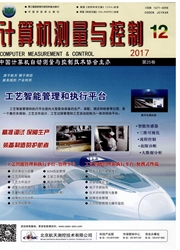

 中文摘要:
中文摘要:
针对纯方位目标跟踪系统中模型状态简化、系统噪声统计特性未知、目标初始距离信息不准确导致的滤波收敛时间长和滤波精度不高的问题,以自主水下机器人(autonomous underwater vehicle,AUV)跟踪水下动态目标为例,提出了一种基于强跟踪平方根容积卡尔曼滤波器(strong tracking square root cubature kalman filter,STFSRCKF)的纯方位目标运动分析算法;该算法在滤波过程中,利用平方根容积卡尔曼滤波器(square root cubature kalman filter,SRCKF)完成预测更新,对于SRCKF中的每个容积点采用强跟踪滤波器(strong tracking filter,STF)进行更新,设计滤波增益以抑制噪声对系统状态估计的影响,有效提高了滤波的数值稳定性,减小了状态估计误差;通过仿真分析,比较了扩展卡尔曼滤波器(extended kalman filter,EKF)、无迹卡尔曼滤波器(unscented kalman filter,UKF)、平方根容积卡尔曼滤波器(square—root cubature kalman filter,SRCKF)、STFSRCKF的算法性能,实验表明所提算法具有跟踪速度快,精度高等优点。
 英文摘要:
英文摘要:
In order to solve the problems of target motion analysis convergence time too long and low accuracy for AUV bearings--only target tracking by model simplification, unknown noise statistical properties and target initial distance information inaccurate, an improved Strong Tracking Square Root Cubature Kalman Filter bearings only target motion analysis method is propoesd. With the STFSRCKF algorithm, the equation of state is predicted and updated with SRCKF, each cubature point of SRCKF is updated by strong tracking filter (STF), the effects of noises on system state estimation are suppressed by optimizing filter gains, and the system state estimation converges to real values quickly. At last, several algorithms such as EKF, UKF, SRCKF and STFSRCKF under different initial condition and noise environmentare were compared in numerical simulation experiments. The experimental results show that the proposed strong tracking SRCKF filter has better performance on robustness and convergence.
 同期刊论文项目
同期刊论文项目
 同项目期刊论文
同项目期刊论文
 期刊信息
期刊信息
